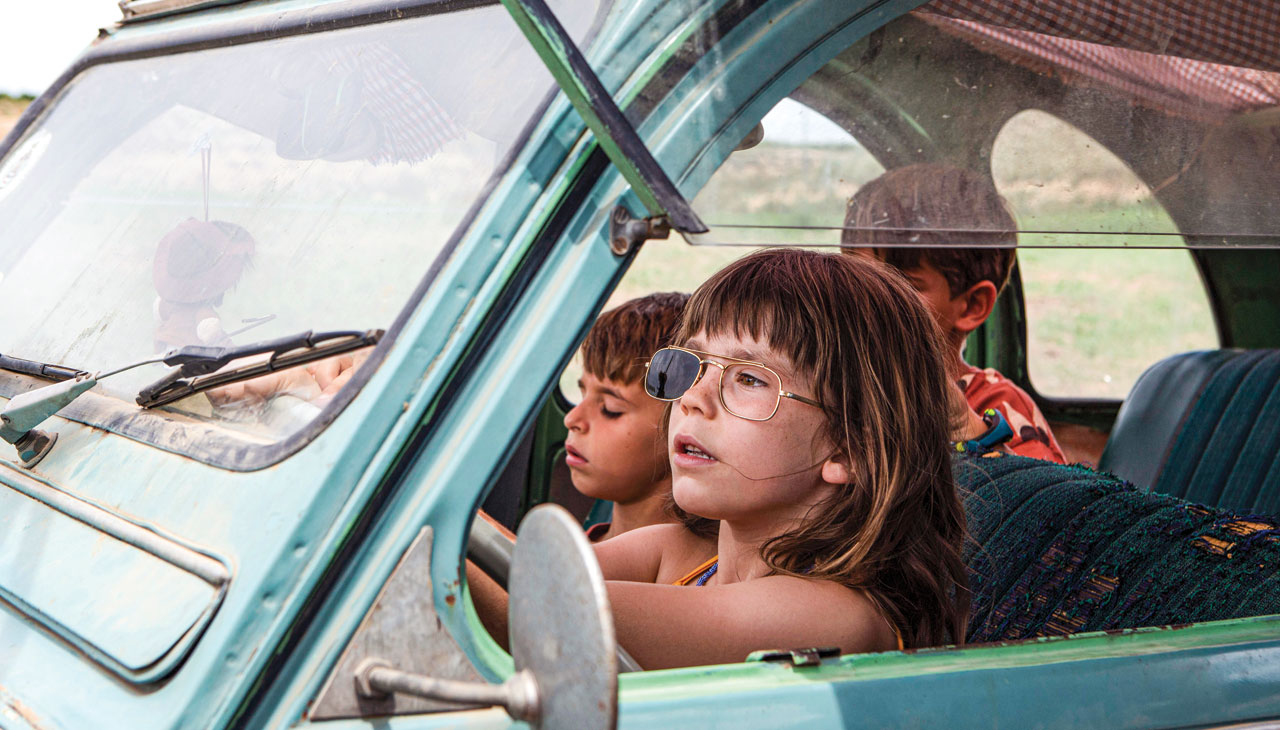
'Alcarràs,' the resistance of the countryside
The Spanish film by Carla Simón tells the story of the life of a family dedicated to agriculture. It was recently released in theaters in the U.S.
No outsider would have heard of Alcarràs if it weren't for Alcarràs. The feature film directed by Spanish filmmaker Carla Simón strips this Catalan town of around 10,000 inhabitants bare for the cameras to tell an immersive, true-to-life story that unites tenderness, cruelty, honor, betrayal, progress, and greed.
The film, narrated in Catalan, introduces the Solé family, who work the land from sunrise to sunset, overcoming climatic and economic adversity to harvest peaches. The countryside is their home and farming is part of a legacy passed down from generation to generation for 80 years.
However, this season could be the last for the Solé family to pick fruit, as the shadow of eviction is choking them. New plans by the owners of the land the family farms include cutting down trees to install solar panels. The situation cracks the brotherhood and brings uncertainty to the green horizon.
A real-life inspiration
To write and direct her second feature film, Simón drew on the life of a family she knows very well: her own.
“For me, Alcarràs is my mother’s village and that of her family. It’s where my uncles and aunts grow peaches. Yesterday I had to give the opening speech at the winter festivities in Alcarràs and reflected on what Alcarràs is for me... which was initially that, my mother’s village, but now, after making the film, it’s many other things. By making the film, talking to my uncles and aunts and to the people, I have been able to get to know the territory in a deeper way. For me, Alcarràs is, above all, resistance and resilience of the farmers who cultivate the land, because right now it is very hard. It’s hard enough to farm, because there are many things you can’t control, but these people are there and they have so much love for the land that for me it’s admirable,” the director told AL DÍA.
The drama stars non-professional actors, among them children, in whom Simón found a key element: “Working with children is difficult, but there is one thing that is easier to achieve with them: the tone, that feeling of naturalness, of things flowing almost by chance. That’s something they help to achieve. On one hand, it’s a game for them, they are spontaneous, but they also help adults not to think so much about themselves. There is something interesting in children’s gaze, I feel it is very cinematographic because they don’t understand everything. And in the end, as a spectator, when we see a film, that’s what it’s about, what you understand, what you don’t understand and what you discover.”
In Simón's films, childhood reveals her own memories.
RELATED CONTENT
“Children have a way of playing that I had: zero screens, lots of nature, an inner world and playing with my brothers. This has a lot to do with me and I think about why I am so interested in children and I always end up relating it to the fact that I lost my parents when I was little, which, I think, gives me a sensitivity towards them, because I want to portray their worlds, their looks and think about their psychology,” she said.
A U.S. premiere
Alcarràs was screened for the first time at the Berlinale in 2022, where it won the Golden Bear. It was also Spain’s candidate for Best Foreign Film at the Oscars, although it was shortlisted. It continues to reap success to this day: it won the Gaudí Award for Best Catalan-language Film, Best Director, Best Original Screenplay, Best Production Management and the Audience Award.
The film was also nominated in 11 categories for the Goya Awards, the most prestigious Spanish film awards, with a gala to be held on Feb. 11.
The feature film, which was released in U.S. theaters in January, and will continue to be screened in February, will be available on MUBI on Feb. 24.











LEAVE A COMMENT: